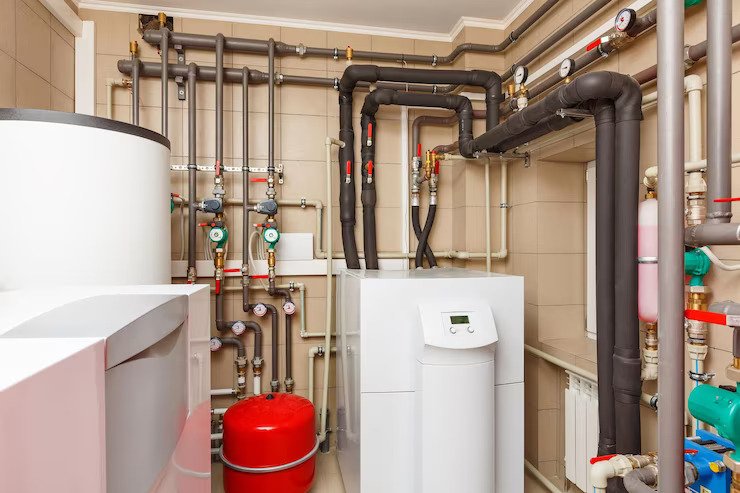What To Keep In Mind When You Buy A Gas Hot Water System?
by Arnab Dey Real Estate Published on: 27 June 2023 Last Updated on: 18 July 2023

Investing in a gas hot water system is an important decision that can have lasting ramifications on both daily comfort and utility costs.
As per hot water systems expert Same Day Hot Water Service, there are various options on the market, so it is wise to do your research before making your purchase decision.
In this blog post, we’ll highlight key considerations you must keep in mind when you buy a gas hot water system and how this can ensure you find a system tailored to meet your specific requirements.
How Does A Gas Hot Water System Works?
A gas hot water system is mainly composed of three factors- the heating element, the storage tank, and the thermostat. First of all, the heating elements remain to be the most crucial component as it helps in heating the water. One must always consider this heating element’s capabilities before purchasing a gas hot water system.
Too hard or too soft water can ruin the heating elements of the geyser as well as its inner tank. The heating elements are layered with glass lining that is no less than a protective layer against scaling. This boosts the lifespan of the gas hot water system.
Try to get a product of decent quality so that you have better longevity with the product. Quality must unquestionably be one of the top most priorities you must consider while getting such a product in your home.
Storage Tank
Since the storage tank is responsible for holding the hot water, it has to be corrosion-resistant and extremely strong. In the market, you will basically find two hot gas water systems. The first is the Vitreous Enamel tank coated with glass, and the other is the Stainless steel storage water tank.
People are no longer willing to invest in stainless steel tanks as they get easily corroded on the scaling of hard water. However, the former is a great alternative, proven effective for geyser technology. These are similar to stainless steel tanks but with better resistance to hard water.
The Thermostat
No gas hot water system can ever operate without a thermostat. It acts as the operating system of the equipment and helps in deciding the start and stop point of the geyser. Generally, a bimetallic strip helps in transforming the temperature switches into a mechanical displacement.
Additionally, the bimetallic strip in the thermostat is made of copper and steel. The thermostat remains attached to this strip which helps in making the decision on behalf of the entire appliance. Make sure your thermostat ensures security against the water getting excessively heated.
Things To Consider While Purchasing A Gas Hot Water System
With the change in technology, you can get good quality products at reasonable prices.
But you can not only pick one without giving it a second thought. The companies come with different technology and assure you with the best products. But sadly, that’s not the case. You have to count the pros and cons of the system and select the ones according to your convenience.
The next section of the article consists of a compilation of considerations you might want to make while investing in a gas hot water system:
Energy Efficiency:
One of the primary considerations in purchasing a gas hot water system should be energy efficiency. Look for systems with high-efficiency ratings, as this will reduce your energy consumption and utility bills, typically indicated by star ratings, with higher ratings indicating greater effectiveness.
Opting for such a system will lead to long-term cost savings while decreasing environmental impacts.
Size and Capacity:
Your gas hot water system should meet the needs of your household when selecting its size and capacity. Consider factors like the number of residents in your home, peak hot water usage times, and the number of bathrooms when determining an appropriate size.
Choosing an undersized system may lead to insufficient hot water availability while oversizing can result in unneeded energy wastage; consult professionals or manufacturer guidelines in selecting an apt system size for you.
Installation Requirements:
Before purchasing, it is imperative that you understand the installation requirements for a gas hot water system. Gas hot water systems often require professional installation due to their complex nature and safety considerations; ensure there is enough space, appropriate gas connections, ventilation, and adequate ventilation in your environment if you want the best results from installation.
Likewise, factor any additional plumbing or electrical work into your budgeting plans when considering installation costs.
Maintenance and Warranty:
Proper care of a gas hot water system is key to its efficient and long-term performance, so before making your purchase, find out about its maintenance requirements and suggested service intervals. Similarly, verify whether its manufacturer provides a comprehensive warranty covering parts and labor for an acceptable period. Understanding their terms will give you peace of mind as it prevents unexpected repair expenses from unexpected repairs.
Consumer Reviews And Reputation:
Before making your purchase decision, conduct research into both the business and model you’re considering. Choose reliable brands known for producing long-lasting gas hot water systems; read customer feedback to gain knowledge about the durability, performance, and consumer satisfaction levels of the systems you are interested in.
Customer forums or review websites are invaluable resources in helping make an informed decision.
Safety Features:
Gas hot water systems utilize natural gas, making the safety of the utmost importance.
Make sure the system you select meets all applicable safety regulations and standards, including automatic shut-off valves, temperature controls, and pressure relief valves to help avoid accidents while maximizing performance.
Certification from recognized organizations may further demonstrate its dependability.
Conclusion:
When buying a gas hot water system, it’s essential to keep in mind several key considerations: energy efficiency, size and capacity, installation requirements, maintenance/warranty needs, brand reputation, and safety features.
By paying attention to these details, you will ensure a system that fits your household’s hot water needs while saving energy while offering reliable performance for years ahead.
Investing in the appropriate system means enjoying hot showers while cutting utility costs while contributing towards creating a greener future.
Read Also:



































































































